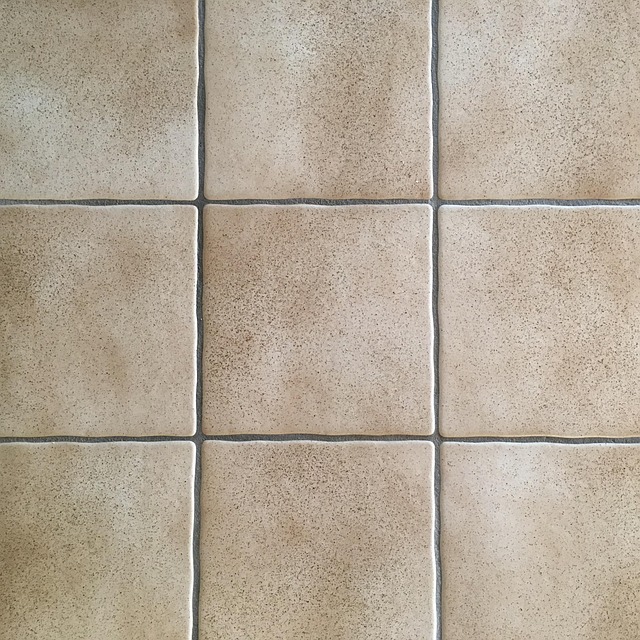The Beauty and Durability of Epoxy Flooring: A Comprehensive Guide
Epoxy flooring has become increasingly popular in both residential and commercial spaces due to its exceptional durability, chemical resistance, and easy maintenance. This versatile flooring option offers a wide range of benefits and applications, making it an attractive choice for many property owners. In this comprehensive guide, we'll explore the various aspects of epoxy flooring, from its benefits to installation techniques and trending designs.

What are the benefits of epoxy flooring in residential and commercial spaces?
Epoxy flooring offers numerous advantages for both residential and commercial applications. Its durability is one of its most notable features, as it can withstand heavy foot traffic, impacts, and abrasions without showing signs of wear. This makes it ideal for high-traffic areas such as garages, warehouses, and retail spaces.
Chemical resistance is another significant benefit of epoxy flooring. It can withstand exposure to various chemicals, oils, and solvents without deteriorating or staining. This property makes it particularly useful in industrial settings, laboratories, and automotive workshops.
Maintenance is a breeze with epoxy flooring. Its seamless, non-porous surface is easy to clean and doesn’t harbor bacteria or allergens. Regular sweeping and occasional mopping are usually sufficient to keep the floor looking pristine, saving time and effort in both residential and commercial environments.
What are the different types of epoxy coatings and their applications?
Epoxy flooring comes in several varieties, each with specific applications and benefits:
-
Self-leveling epoxy: This type creates a smooth, seamless surface ideal for commercial and industrial spaces with heavy foot traffic or equipment use.
-
Quartz epoxy: By incorporating quartz aggregate, this coating provides enhanced slip resistance and decorative appeal, making it suitable for commercial kitchens, locker rooms, and pool decks.
-
Metallic epoxy: This finish offers a unique, high-gloss appearance with swirling, three-dimensional effects. It’s popular in showrooms, retail spaces, and high-end residential applications.
-
Flaked epoxy: By adding color flakes to the epoxy, this type creates a speckled appearance that can hide imperfections and add slip resistance. It’s commonly used in garages, basements, and industrial settings.
How to properly prepare and install epoxy flooring for long-lasting performance?
Proper preparation and installation are crucial for the longevity and performance of epoxy flooring. The process typically involves the following steps:
-
Surface preparation: The existing floor must be thoroughly cleaned, degreased, and etched or ground to create a porous surface for better adhesion.
-
Repair and patching: Any cracks, holes, or imperfections in the substrate should be filled and repaired before applying the epoxy.
-
Priming: A primer coat is often applied to improve adhesion and prevent air bubbles from forming in the epoxy layer.
-
Mixing and application: The epoxy components are mixed according to the manufacturer’s instructions and applied evenly using rollers or squeegees.
-
Optional additives: Depending on the desired finish, additives like color flakes or anti-slip materials may be incorporated.
-
Curing: The epoxy needs time to cure fully, which can take 24-72 hours, depending on the product and environmental conditions.
Professional installation is often recommended to ensure the best results and longevity of the epoxy flooring.
How does epoxy compare to other flooring options in cost and functionality?
When comparing epoxy flooring to alternatives like tile, concrete, and vinyl, several factors come into play:
| Flooring Type | Cost per sq ft | Durability | Maintenance | Lifespan |
|---|---|---|---|---|
| Epoxy | $3 - $12 | High | Low | 10-20 years |
| Tile | $5 - $20 | Medium | Medium | 10-20 years |
| Polished Concrete | $3 - $8 | High | Low | 20+ years |
| Vinyl | $2 - $7 | Low-Medium | Low | 5-20 years |
Prices, rates, or cost estimates mentioned in this article are based on the latest available information but may change over time. Independent research is advised before making financial decisions.
Epoxy flooring offers excellent durability and low maintenance at a competitive price point. While its initial cost may be higher than some options, its long lifespan and minimal upkeep requirements often make it more cost-effective in the long run, especially for high-traffic areas.
Functionality-wise, epoxy excels in areas requiring chemical resistance and easy cleaning, making it ideal for industrial and commercial applications. However, for residential spaces where warmth and comfort are priorities, options like tile or vinyl might be preferred.
What are the trending epoxy flooring designs for 2025?
As we look ahead to 2025, several exciting trends are emerging in epoxy flooring design:
-
Bold colors: Vibrant, eye-catching hues are gaining popularity, allowing for creative and unique floor designs.
-
3D effects: Advanced application techniques are creating stunning three-dimensional illusions, adding depth and interest to floors.
-
Slip-resistant textures: Increased focus on safety is driving the development of attractive, slip-resistant finishes suitable for both commercial and residential use.
-
Metallic finishes: The luxurious, fluid appearance of metallic epoxy continues to be in high demand for high-end residential and commercial spaces.
-
Geometric patterns: Custom designs incorporating geometric shapes and patterns are becoming increasingly popular, allowing for personalized and artistic floor installations.
These trends showcase the versatility of epoxy flooring, demonstrating its ability to combine functionality with aesthetic appeal in various settings.
In conclusion, epoxy flooring offers a compelling combination of durability, easy maintenance, and design flexibility. Its wide range of applications and benefits make it a strong contender for both residential and commercial flooring needs. As technology and design trends continue to evolve, epoxy flooring is likely to remain at the forefront of innovative flooring solutions.




